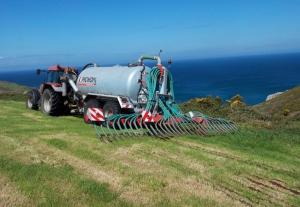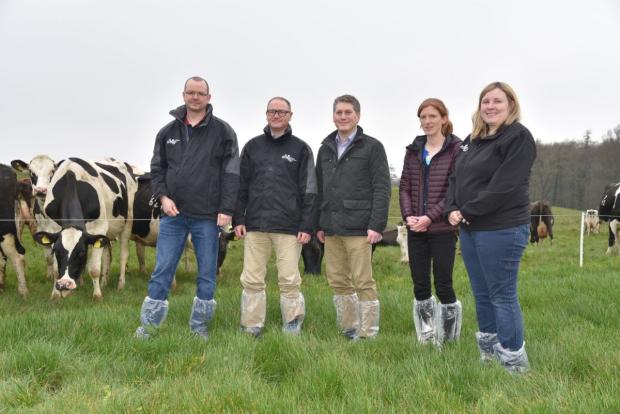Optimising soil nutrients and increasing the efficiency of soil nutrient management will be one of the key topics to be featured at the Agri-Food and Biosciences Institute (AFBI) Dairy Open Day at Hillsborough, on the 6th June this year entitled "Dairy Innovation 2018: Profiting from AFBI Research"

Prepare your soil for 2018
From August 2017, grass utilisation on many farms across Northern Ireland was severely hampered by saturated soils and difficult ground conditions. This has continued through into the first few months of 2018, with very challenging conditions that have delayed the start of the grazing season for many farmers.
AFBI’s Dr Suzanne Higgins explains that with temperatures expected to rise considerably during the latter part of April, it is important to have an ample supply of readily available nutrients to maximise early growth potential. As soon as ground conditions allow, a 2000 gal/acre dressing of slurry will supply a substantial proportion of nitrogen (N), phosphorus (P) and potassium (K) requirements for first cut silage. AFBI research has shown that applying slurry by dribble bar or trailing shoe technology in spring can improve grass yields by up to 25%. This is due to an increase in the amount of available nitrogen and a reduction in the amount of N lost via ammonia emissions compared to splash plate systems. A perennial ryegrass silage crop can utilise around 2.5 kg/ha/ day of N (2 units/day) during peak growth. First cut yields of over 5 t/ha of dry matter would require 125 kg N/ha (equivalent to 3¾bags/acre of 27% N fertiliser where no slurry has been applied) to be applied by mid-April (around 50 days before cutting) to ensure full growth potential and enable a first cut by late-May 2018.
The importance of Sulphur and Potash
Sulphur deficiency is common in Northern Ireland and can result in yield losses of up to 30%. A spring application of 40 kg SO3/ha on silage ground from a sulphur-containing fertiliser is advised (even if slurry has been applied), and 20-30 kg SO3/ha on grazed ground when up to 100 kg N/ha is applied. An adequate supply of potash (K) is also essential for optimum grass yields. AFBI research has found that 15 – 20% of 1st and 2nd cut silage swards in Northern Ireland display K deficiency and dry matter yield losses of up to 30%. However, care is required. High inputs of K on grazed fields in spring can reduce the uptake of magnesium, which is a contributing factor in Grass Tetany (hypomagnesaemia), a major cause of spring time deaths in cows in NI. To avoid nutrient surpluses and nutrient deficiencies, and improve overall nutrient use efficiency on farms, a soil test every 4-5 years is recommended.
The latest soil and nutrient management research findings and their benefits for dairy farming in Northern Ireland will be demonstrated at the AFBI Open Day at Hillsborough on 6th June.

Notes to editors:
AFBI carries out high quality technology research and development, statutory, analytical, and diagnostic testing functions for DAERA and other Government departments, public bodies and commercial companies.
AFBI's Vision is “Advancing the local and global agri-food sectors through scientific excellence”.
All media enquiries to AFBI Press Office
Latest news
- Resilience, Sustainability and Innovation survey 03 March 2025
- AFBI led Project Launched to Promote Sustainable Dairy Farming across the UK 18 February 2025
- UK Project Launched to Promote Sustainable Dairy Farming 11 February 2025
- International Day of Women and Girls in Science 11 February 2025
